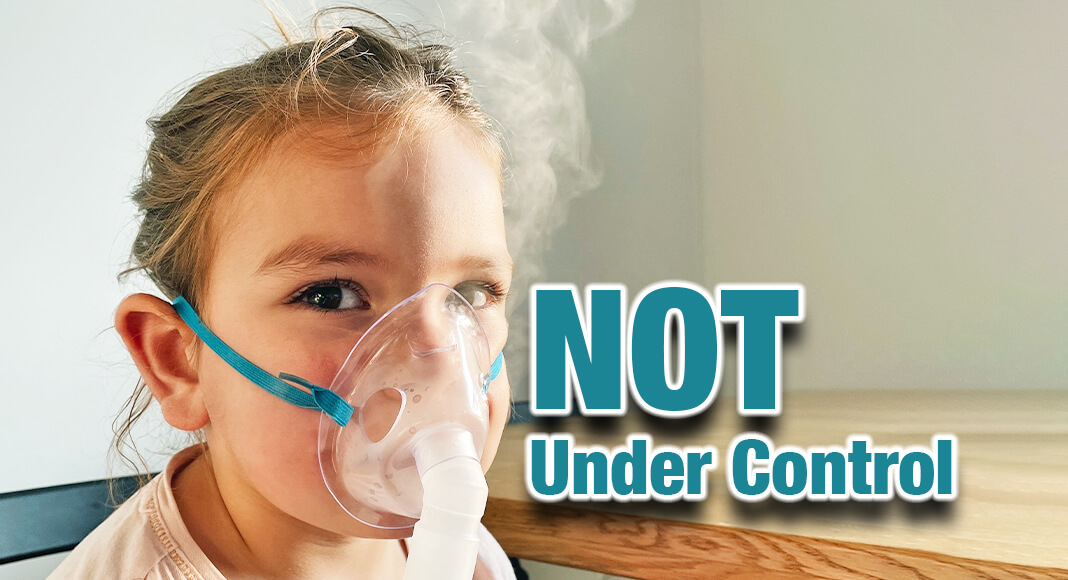
Mega Doctor News
By Murdoch Childrens Research Institute
Newswise — Hospital readmissions for asthma are increasing among children, according to a new study, highlighting the gaps in health care for the most common chronic paediatric illness.
The study, led by the Murdoch Children’s Research Institute and published in the Journal of Asthma, found about one in three children, mostly preschoolers, are readmitted to hospital for asthma compared to one in five a decade ago.
Murdoch Children’s Dr Katherine Chen said most asthma hospital presentations were preventable, emphasizing the need for a holistic evaluation of each child’s asthma management to prevent future readmissions.
The study involved 767 children, aged three to 18 years, who were admitted to three hospitals in Victoria between 2017-2018 with a diagnosis of asthma. It found 34.3 per cent were readmitted to hospital for asthma, with those aged three to five years accounting for 69.2 per cent. Of the 767 participants, 20.6 per cent were readmitted once and 13.7 per cent had two or more readmissions in 12 months.
“Our study highlighted gaps in the children’s asthma care,” Dr Chen said. Over a third of children hadn’t had a review of their inhaler technique and only about a quarter were prescribed a preventer or asked to continue using it.
“Almost three quarters were discharged without a preventer medication and over 80 per cent did not have a follow-up clinic booked at the hospital, often reserved for children with difficult to control asthma. Most families therefore need to navigate their child’s asthma follow-up with their GP.”
Dr Chen said there had also been a recent spike in asthma admissions due to the rise in respiratory infections and children lacking immunity to common viruses following COVID-19 lockdowns.
Murdoch Children’s Professor Harriet Hiscock said the findings confirmed the important role of GPs in pediatric asthma management and how targeted interventions at each hospital could reduce readmissions.
“Less than 10 per cent were readmitted within 30 days suggesting the importance of ongoing community care and longer-term asthma control,” she said. The need to regularly review overall asthma management, minimize risk factors, arrange follow-up, and support optimum care in the community are key.
“Interactive digital symptom monitoring with specialist nurse support, home based education and a culturally tailored education program could also help.”
Professor Hiscock said linked datasets were important for objectively measuring the burden of asthma cases on health services.
“Our current dataset cannot verify whether the follow-up appointment was attended, whether caregivers had arranged follow-up post discharge and if the medications were used as prescribed,” she said. Integrating datasets such as health services and medication use into clinical care will improve the clinician’s understanding of the child’s asthma control and medication adherence and would assist in providing targeted treatments.”
Asthma is the most common chronic pediatric illness in industrialized countries, affecting 8-10 per cent of children. In Australia, it is a leading cause of preventable pediatric hospital admissions.
Melbourne mom Megan Snelgrove’s daughter Aurora, 10, who was diagnosed with asthma at age four, is readmitted to hospital two-three times a year for asthma.
“We initially had challenges navigating the system because Aurora has a very specific type of asthma, hypersecretory asthma, which presents slightly differently to typical asthma and is treated in a different way.
“Aurora has a complicated case and it has been trial and error with her treatment. Ventolin doesn’t help because it treats inflammation not secretions and this was very much misunderstood in our first few visits to the hospital. But since being followed up by the hospital’s respiratory team things have improved.”
Researchers from The Royal Children’s Hospital, the University of Melbourne, Deakin University, University Hospital Geelong and Northern Health also contributed to the study.
Publication: Katherine YH Chen, Wanyu Chu, Renee Jones, Peter Vuillermin, David Fuller, David Tran, Lena Sanci, Shivanthan Shanthikumar, John Carlin and Harriet Hiscock. ‘Modifiable factors associated with pediatric asthma readmissions: a multi-centre linked cohort study,’ Journal of Asthma. DOI: 10.1080/02770903.2022.2089996











